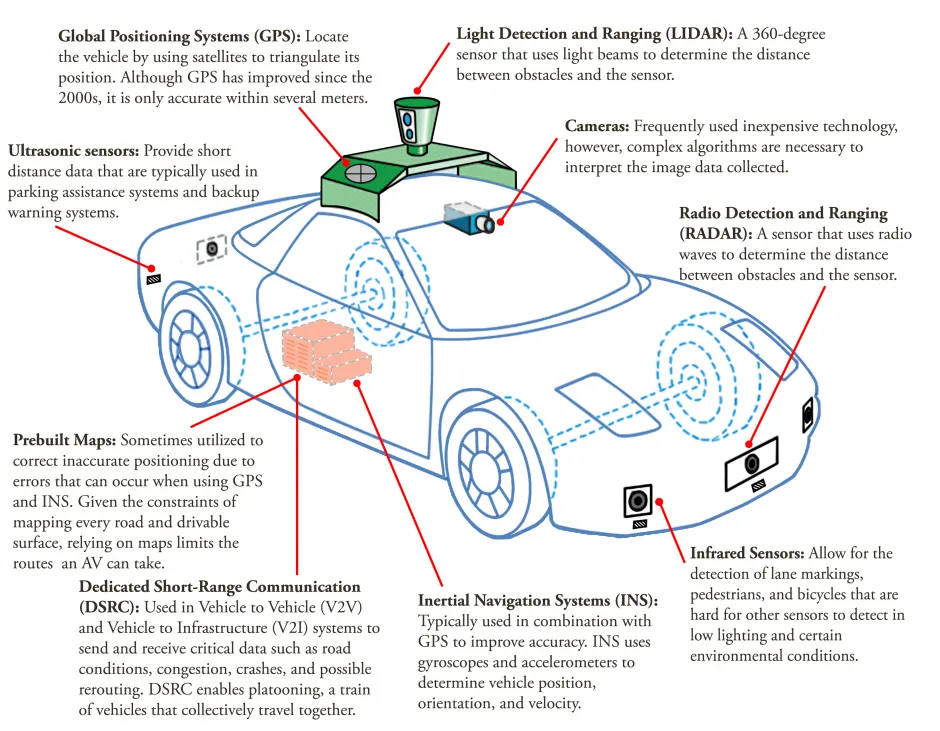Tech Versum: Explore the Future of Technology
Dive into the latest trends and innovations in technology with Tech Versum.
Who Needs a Driver Anyway?
Discover why going driverless is the future of freedom! Uncover the perks of self-driving tech and why you might not need a driver anymore.
The Rise of Autonomous Vehicles: Are Drivers Still Necessary?
The rise of autonomous vehicles marks a significant shift in the transportation landscape. As technology advances and self-driving cars become more prevalent, the question arises: are drivers still necessary? With experts predicting that fully autonomous vehicles could dominate the roads within the next decade, it's essential to explore how this shift might affect the role of traditional drivers. While the promise of reduced accidents and increased efficiency is enticing, the transition to a vehicle-piloting landscape raises concerns about job displacement and the future of driving as a skill.
Despite the advancements in self-driving technology, many argue that human drivers will still play a crucial role in the transportation ecosystem. For instance, there are instances where human judgment is vital, such as navigating complex urban environments or reacting to unpredictable emergencies. Moreover, the transition to autonomy involves several challenges, including regulatory hurdles and public acceptance. Thus, while the rise of autonomous vehicles indicates a move towards a more automated future, it is unlikely that human drivers will become entirely obsolete in the near term.

Exploring the Benefits of Rideshare Services: Who Needs a Personal Driver?
The rise of rideshare services has transformed the way we think about transportation. With a simple tap on a smartphone app, users can access reliable and often more economical alternatives to traditional taxi services. Rideshare services provide numerous benefits, including convenience, cost-effectiveness, and flexibility. They cater to a wide array of individuals, from busy professionals needing to navigate through urban traffic to college students looking for an affordable way to get around campus. With the option to choose from shared rides to luxury vehicles, there’s something for everyone, ensuring that no one needs to rely solely on having a personal driver.
Furthermore, the availability of rideshare services can greatly enhance mobility for those who may not own a vehicle or prefer not to drive. This includes seniors who require assistance with transportation to appointments or individuals who may not have a valid driver’s license. The ease of arranging a ride contributes to a sense of independence, allowing users to maintain their daily routines without the burden of car ownership. Additionally, rideshare platforms often prioritize safety and support, making them a reliable choice for anyone—especially those who are cautious about their travel options.
Could You Imagine Life Without a Driver? The Future of Transportation
Could you imagine life without a driver? The future of transportation is rapidly evolving, with innovations like autonomous vehicles taking center stage. These driverless cars promise to revolutionize our daily commutes, enhancing efficiency and safety. Picture a world where traffic accidents are significantly reduced, and your time spent in transit is transformed into productive moments. As cities embrace smart infrastructure, the integration of self-driving technology could lead to less congestion and a more eco-friendly means of travel. This transformative shift in transportation not only redefines the way we navigate our environments but also reshapes urban planning and public transportation systems.
Moreover, the implications of a driverless future extend far beyond personal vehicles. The transportation industry, including freight and public transport, stands to gain immensely. Logistics companies are already exploring autonomous trucks that can deliver goods without human intervention, potentially lowering costs and increasing delivery speed. Additionally, public transit systems might incorporate autonomous shuttles, making commuting more accessible and efficient for everyone. As we envision this future, we must consider the challenges and opportunities presented by embracing a world without drivers, ranging from ethical dilemmas to the redefinition of urban spaces.